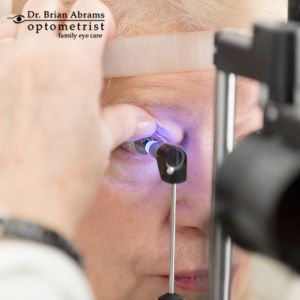According to the Canadian Association of Optometrists, Glaucoma affects more than 450,000 Canadians and is the second leading cause of vision loss in the country’s older population. Caused by intraocular pressure and fluid buildups, Glaucoma is a serious eye condition that results in damage to the optic nerve, which in time results in vision changes and vision loss.
The condition does not often present notable symptoms to the average person in its early stages, so it’s imperative that you schedule regular eye exams with your eye doctor in Vaughan to detect signs of the disease early. The first step to managing Glaucoma is with professional eye care from a trusted eye doctor near you. To learn if you are at risk of Glaucoma or to explore treatment options, contact Dr. Brian Abrams in Vaughan.
If you’re at risk for Glaucoma or already living with it, an experienced optometrist like Dr. Brian Abrams in Vaughan can help manage the condition, protect your eyesight, and minimize discomfort.
Here are some of the ways your eye doctor near you can assist with the detection, management, and treatment of Glaucoma.
Signs of Glaucoma

In its earlier stages, Glaucoma is difficult to detect without a comprehensive eye exam conducted by a knowledgeable and experienced eye doctor. As you age and the condition progresses, you may notice symptoms such as:
- Eye pain or pressure.
- Persistent Headaches
- Rainbow-coloured halos around lights
- Low vision, tunnel vision or blind spots.
- Blurred vision
- Nausea and vomiting
- Red eyes
If you experience any of these symptoms, call Dr. Brian Abrams immediately. By consulting with an eye doctor in Vaughan promptly, you can get a thorough examination from the doctor to carefully check for signs of Glaucoma and start treatment sooner.
How Eye Doctors Test for Glaucoma
Depending on the type of Glaucoma you’re facing and the symptoms you’re dealing with, the tests and diagnosis may differ. One of the most common tests used during eye exams for glaucoma detection is the peripheral vision test, also known as a “perimetry” test.
Because peripheral vision (side vision) is often the first affected by Glaucoma, it is used to assess the progression of the illness and its impact on vision and overall health. During a perimetry test, patients look toward a central image, where smaller lights will act as visual stimuli in the periphery. By identifying which of the lights are visible, eye doctors can measure the peripheral vision and track any changes. This test helps eye doctors identify blind spots and gain valuable insights into the effects of Glaucoma on your eye health.
If there is reduced vision, your eye doctor in Vaughan will start working on treatment options that will reduce vision loss and the other side effects of the illness.
Glaucoma Treatment Options
Once Glaucoma is detected, there are various treatment options available to help manage the condition and protect your vision. Your optometrist will recommend a treatment plan based on the type and severity of Glaucoma. Common treatment methods include:
- Medicated Eye Drops: The most common treatment for Glaucoma is prescription eye drops that help lower pressure in the eye (intraocular pressure). These drops work by reducing the amount of fluid your eye produces or improving fluid drainage.
- Oral Medications: If eye drops are not sufficient in lowering eye pressure, your doctor may prescribe medications to reduce the production of eye fluid. Oral medications are deisgned to promote better drainage and ultimately reduce pressure on the optic nerve.
- Laser Treatment: Laser therapy is a non-invasive procedure that can help reduce intraocular pressure. This may involve laser trabeculoplasty (for open-angle Glaucoma) or laser iridotomy (for angle-closure Glaucoma).
- Surgery for Glaucoma: In more severe cases, surgery may be necessary to create a new drainage pathway for fluid or to improve existing drainage systems. Common surgeries include trabeculectomy and drainage implant surgery. If surgery is required for Glaucoma or any other eye disease, Dr. Brian Abrams, as a reliable and experienced local eye doctor in Vaughan, will refer you to a trusted and reputable surgeon.
Fight the Effects of Glaucoma with Your Eye Doctor in Vaughan
From persistent pain to vision loss, the symptoms of Glaucoma can be challenging to manage without support from an eye doctor. With comprehensive vision care, including eye exams, treatments, and check-ins with a leading eye doctor in Vaughan, like Dr. Brian Abrams, you can live more comfortably, improving your quality of life and extending the longevity of your vision.
Because Glaucoma can start without symptoms, it’s essential to prioritize routine eye exams with your local optometrist continually.
If signs of the illness are detected, you can explore tailored treatment options with Dr. Brian Abrams.


